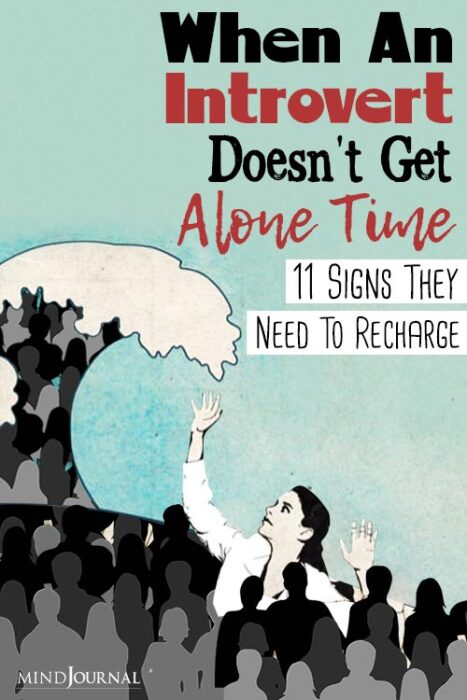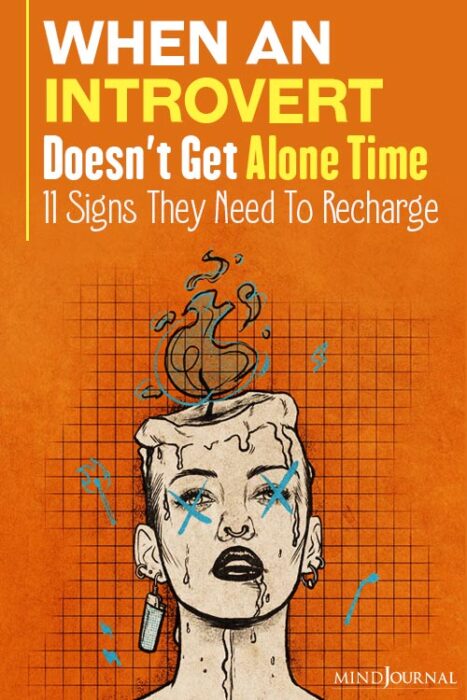What Happens When Introverts Don’t Get Alone Time? 11 Signs
If you are an introvert, you know how precious alone time is for you, and when you don’t get enough of it, how awful you really feel. Introverts and alone time go hand in hand, and when there’s a lack of it, introverts feel like they are going in a downward spiral. So, what happens when introverts don’t get alone time?
You often feel more comfortable and energized in quieter, more reflective environments where you can focus on your own thoughts and feelings. As a result, alone time is critical for you to recharge your batteries and replenish your energy reserves. For you, alone time is not just a luxury, but a necessity for your mental and emotional well-being.
So, why does an introvert need to be alone at times?
Related: How To Recharge As An Introvert: 7 Unique Ways
Why Do Introverts Need Alone Time?
For introverts, alone time is essential for recharging their energy and processing their thoughts and emotions. It’s a time for reflection, relaxation, and self-care. However, when you don’t get enough alone time, it can lead to feelings of overwhelm, irritability, unhappiness, and exhaustion.
This is because you are constantly engaging with the external world and processing information, which can be draining for you. In this article, we’ll explore the consequences of not getting alone time for introverts and how does an introvert REALLY feel about this.
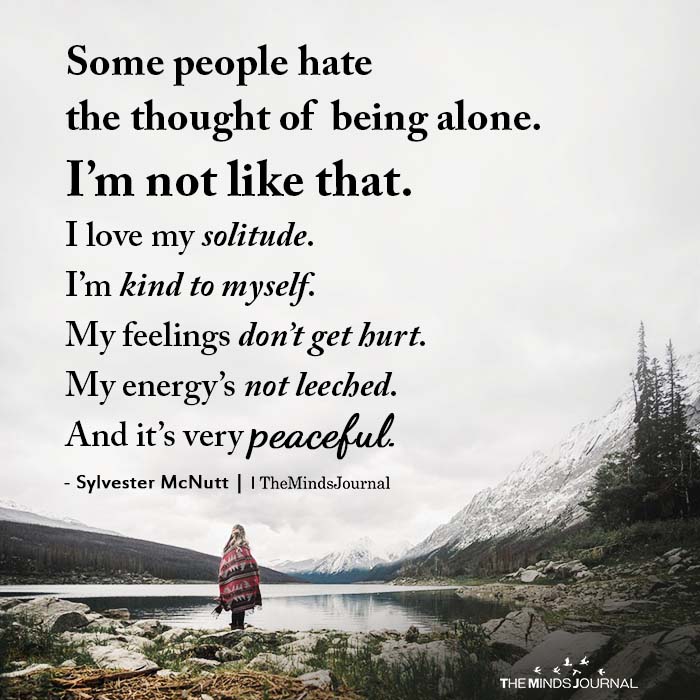
What Happens When Introverts Don’t Get Alone Time? 11 Major Signs To Look Out For
1. You become disinterested in everything.
When introverts don’t get alone time, they don’t enjoy anything they do. Constant socializing and a severe lack of alone time mean that you feel exhausted and drained, and desperately need some emotional regulation. If you’re forced to socialize for long periods of time, you gradually start to lose interest in everything, and you feel miserable.
However, if you get to enjoy some solitude and recharge your batteries, you will be happy to participate in activities and mingle with people, without feeling the need to scream your lungs out in frustration.
2. You realize that your anxiety is gradually worsening.
When you are overstimulated, you can become more anxious. This is because you may feel like you are not in control of your environment or that you do not have the space you need to feel comfortable. When your social battery is low, you slowly start to feel overwhelmed, and as if you are drowning.
Without alone time, you may find it incredibly difficult to manage your anxiety and may experience more frequent panic attacks or other symptoms. Additionally, your overthinking might even get worse, and before you know it, you are trying to best to ward off a panic attack.
Related: 21 Things People Who Love Spending Time Alone Will Understand
3. You become more prone to burnout.
This is what happens when introverts don’t get alone time. When you don’t get to spend some time alone to recharge your batteries, you are at risk of burnout. Burnout occurs when you feel extremely overwhelmed and exhausted by your work or other obligations, be they social, professional, or personal.
Without the opportunity to recharge your batteries, you may find yourself becoming increasingly burnt out and may struggle to manage your workload or other responsibilities. You may even find it difficult to do something, which you could do very easily before. This makes you feel even more helpless and negative toward yourself.
4. You find it hard to sleep properly and your sleep schedule goes for a toss.
This is another major reason why introverts need alone time. Your sleep gets affected when you don’t get enough alone time, and it also ends up affecting your sleep patterns for the worse. You might sleep for long hours, but your quality of sleep ends up being very poor – you toss and turn all night, have nightmares, wake up constantly throughout the night, and finally wake up in the morning feeling exhausted.
Erratic sleep patterns and sleep deprivation makes your anxiety worse and also end up affecting your productivity and mood. Getting to spend some alone time can help you relax and wind down before the day ends, resulting in proper and uninterrupted sleep.
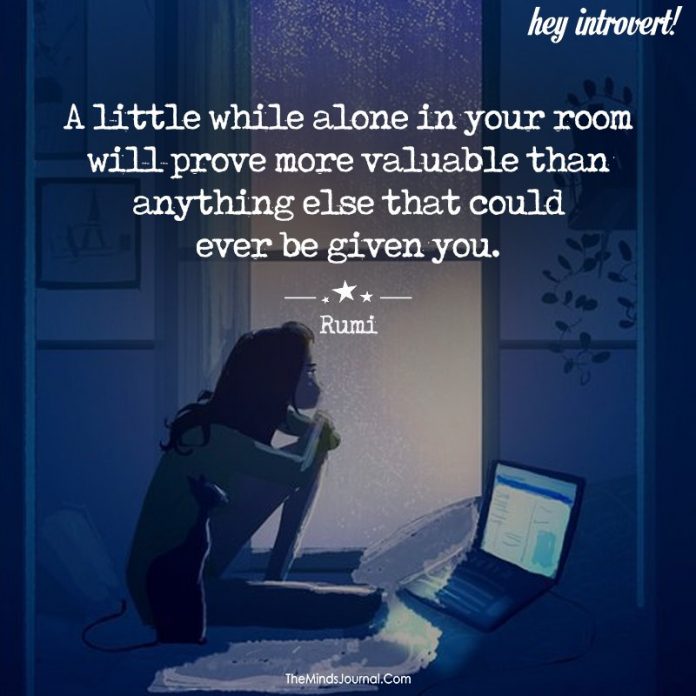
5. You become irritable and moody.
When you are overstimulated, you can become easily irritated and moody. This is because you need time to process your thoughts and emotions and without the opportunity to do so, you may feel overwhelmed and frustrated.
As an introvert, you may find yourself snapping at others or becoming easily agitated when you do not get to enjoy enough solitude and alone time. And because you are not in the right headspace, you lash out at others, even for the most minor things.
Related: Introverts And Alone Time: 5 Reasons Why Introverts Love Their Bedroom So Much
6. You feel annoyed and resentful towards your friends.
This is what happens when introverts don’t get alone time. Introverts are very particular when it comes to making friends because, for them, it’s always quality over quantity. It takes a lot for you to call someone your friend, and the respect and appreciation you show them, you expect the same from them.
So, when your friends refuse to respect your need for alone time and push you to constantly socialize with people, it makes you really angry. You might give in to their demands and wishes, but you will also slowly become bitter and angry towards them. Even if they are your best friend, you will feel irritable and furious with their lack of understanding.
7. You become less patient.
Introverts often have limited tolerance for small talk and other social interactions that do not have a clear purpose. When you do not have enough alone time, your patience can wear thin and you may become less willing to engage with others.
You may find yourself getting frustrated more easily or becoming less tolerant of others’ behavior. You are normally a very understanding and patient person, but when you don’t get to spend some time with yourself and do what makes you feel happy and energized, it’s just a matter of time before you have a huge outburst.
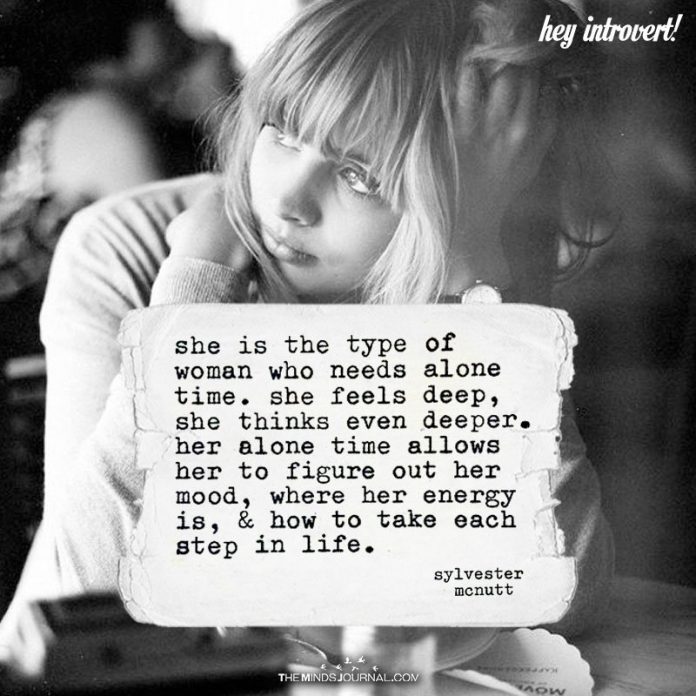
8. You feel emotionally, physically, and mentally drained.
As an introvert, you tend to thrive in quiet and calm environments. When you are constantly around people and external stimuli, your energy can quickly become depleted, leading to feelings of exhaustion and fatigue. Without alone time, you find it extremely difficult to recharge your batteries and may feel like you are running on empty.
And once the emotional exhaustion starts to set in, you start to feel even more depressed, anxious, and miserable. You might continue to socialize, but you won’t be doing it happily, you’ll be doing it out of obligation.
Related: Introvert Personality Type: 10 Guilty Pleasures All Introverts Secretly Share But Won’t Admit To
9. You start to isolate yourself and become more introverted.
When introverts need time alone but don’t get it, they become more introverted. This means that you start to withdraw from social situations and become even more hesitant to engage with others. You also become more self-conscious and feel like you are not able to be yourself around others.
You feel trapped, exhausted, miserable, and extremely unhappy, and all you want to do is curl up into a ball and cry. You gradually become desperate for some time alone, and that’s why you tend to self-isolate. Avoiding people and staying holed up in your room is what happens when your need for alone time is not respected.
10. You show signs of an “introvert hangover”.
Due to a lack of alone time, you start to shut down and show signs of an introvert hangover. But what is introvert hangover really?
An introvert hangover is the feeling of exhaustion, mental fatigue, and social depletion that introverts can experience after spending a significant amount of time in social situations or interacting with others. It is similar to the feeling of a physical hangover after drinking too much alcohol, but the symptoms are emotional and mental rather than physical.
You might become over-sensitive to light, sounds, noise, touch, smells, and other types of external stimuli. Loud noises might annoy you, strong smells end up giving you a headache, your ears start ringing, etc. Everything becomes too much for you to handle, and you feel like running away and never coming back.
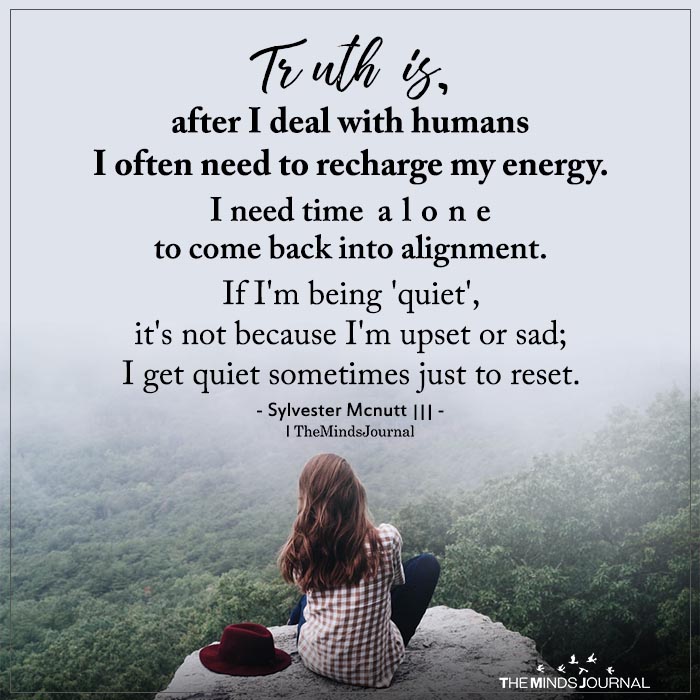
11. You become more disconnected from yourself.
Finally, when you do not have enough alone time, you may become more disconnected from yourself. This means that you may lose touch with your own thoughts and emotions and may feel like you are lost somewhere and don’t know how to come back to yourself. Without enough alone time, you find it difficult to tune out external distractions and focus on your inner world.
Over time, this disconnection from oneself can lead to feelings of loneliness, depression, and anxiety. You may feel like you don’t truly know yourself anymore, or like you are not living an authentic life.
Related: The Happiness Of Living Alone In 10+ Perfect Illustrations
Takeaway
Alone time is a non-negotiable thing for introverts, and compromising with it only makes things more difficult and miserable for you. If you feel like you need some alone time to recharge, then don’t feel afraid of advocating for it, because, at the end of the day, your happiness and mental health matter the most.
Socializing is a good thing to engage in, but it should not be done at the expense of your emotional and mental health. So whenever you feel like you need a break and need some solitude to recharge, go for it. You don’t have to feel guilty for prioritizing yourself; people who genuinely love you, care about you, and understand you will never make you feel bad about this.
Want to know more about introverts and alone time? Check this video out below!
Frequently Asked Questions (FAQs)
How long can introverts be alone?
Introverts need around 5-6 hours of alone time every day to experience peace and a greater sense of emotional and mental well-being.
Do introverts live alone without feeling guilty?
Not really. Even though alone time is really precious for introverts and they try their best to prioritize it, they do sometimes feel guilty about it. Especially when they have to decline a social invitation from their close friend or choose to be alone instead of spending some time with their significant other.
Do an extroverted introvert need alone time?
Yes, extroverted introverts can also crave alone time. When their social battery runs out (whenever that might be), they do want to get away from all the excitement and chaos and just spend some quiet, peaceful time by themselves.
